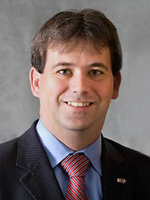
A key state lawmaker is concerned Florida school districts are creating school choice programs in name only to get more flexibility under state class-size rules.
Last month, Senate Education Chairman John Legg asked state officials for data on district schools identified as schools of choice — which, thanks to a law change approved in 2013, means their class-size penalties are calculated based on school-wide averages, rather than at the classroom level.
On Friday, the state Department of Education produced numbers showing more than 60 percent of the schools in Florida were identified as schools of choice during the 2014-15 school year, even though many of them either didn’t offer special programs, or were closed to transfer students.
In an earlier interview, Legg said he understands critics who say Florida’s class-size limits, created by a 2002 constitutional amendment, are too restrictive. Charter schools have long gotten more flexibility under the voter-approved rules, and Legg said if districts want similar treatment, they should offer students bona fide options, rather than simply applying choice labels to traditional neighborhood schools.
Right now, districts decide for themselves what qualifies as a choice school. Thirteen districts (including Lafayette, which is home to one elementary school and one high school) now declare they operate all-choice systems. The number of choice schools in Miami-Dade County jumped by more than 240 in a single school year.
“It appears that a significant number of our districts have used a self-determined definition of choice and an arbitrary concept of innovation,” Legg said today in a statement, adding: “I intend to file legislation to either provide a specific definition of school choice and innovation or completely remove the flexibility that has been afforded.”



[…] size. SB 1634 would require school districts to prove their choice programs are truly choice programs, and document how those schools are innovative, to keep their increased flexibility under […]